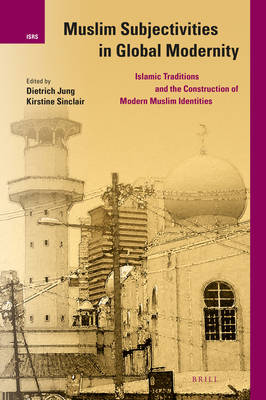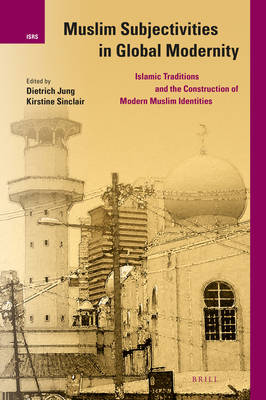
- Afhalen na 1 uur in een winkel met voorraad
- Gratis thuislevering in België vanaf € 30
- Ruim aanbod met 7 miljoen producten
- Afhalen na 1 uur in een winkel met voorraad
- Gratis thuislevering in België vanaf € 30
- Ruim aanbod met 7 miljoen producten
Zoeken
Muslim Subjectivities in Global Modernity
Islamic Traditions and the Construction of Modern Muslim Identities
€ 297,95
+ 595 punten
Omschrijving
With critical reference to Eisenstadt's theory of "multiple modernities," Muslim Subjectivities in Global Modernity discusses the role of religion in the modern world. The case studies all provide examples illustrating the ambition to understand how Islamic traditions have contributed to the construction of practices and expressions of modern Muslim selfhoods. In doing so, they underpin Eisenstadt's argument that religious traditions can play a pivotal role in the construction of historically different interpretations of modernity. At the same time, however, they point to a void in Eisenstadt's approach that does not problematize the multiplicity of forms in which this role of religious traditions plays out historically. Consequently, the authors of the present volume focus on the multiple modernities within Islam, which Eisenstadt's theory hardly takes into account.
Contributors are: Philipp Bruckmayr, Neslihan Kevser Cevik, Dietrich Jung, Jakob Krais, Mex-Jørgensen, Kamaludeen Nasir, Zacharias Pieri, Mark Sedgwick, Kirstine Sinclair, Fabio Vicini, and Ahmed al-Zalaf.
Contributors are: Philipp Bruckmayr, Neslihan Kevser Cevik, Dietrich Jung, Jakob Krais, Mex-Jørgensen, Kamaludeen Nasir, Zacharias Pieri, Mark Sedgwick, Kirstine Sinclair, Fabio Vicini, and Ahmed al-Zalaf.
Specificaties
Betrokkenen
- Uitgeverij:
Inhoud
- Aantal bladzijden:
- 300
- Taal:
- Engels
- Reeks:
- Reeksnummer:
- nr. 35
Eigenschappen
- Productcode (EAN):
- 9789004425569
- Verschijningsdatum:
- 19/03/2020
- Uitvoering:
- Hardcover
- Formaat:
- Genaaid
- Afmetingen:
- 155 mm x 235 mm
- Gewicht:
- 571 g

Alleen bij Standaard Boekhandel
+ 595 punten op je klantenkaart van Standaard Boekhandel
Beoordelingen
We publiceren alleen reviews die voldoen aan de voorwaarden voor reviews. Bekijk onze voorwaarden voor reviews.







